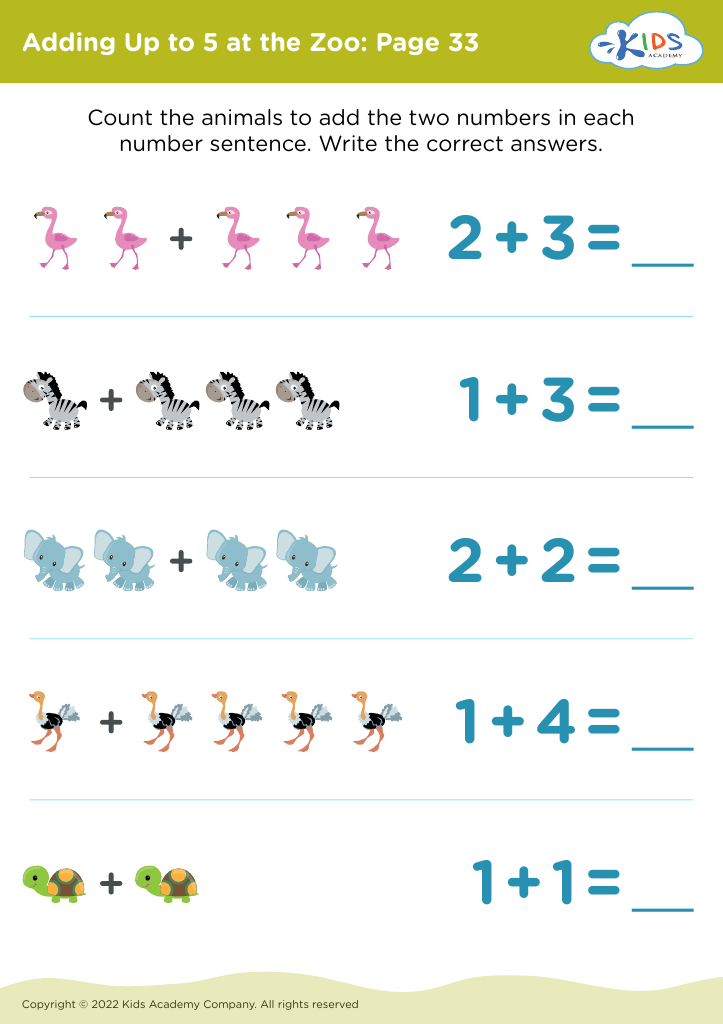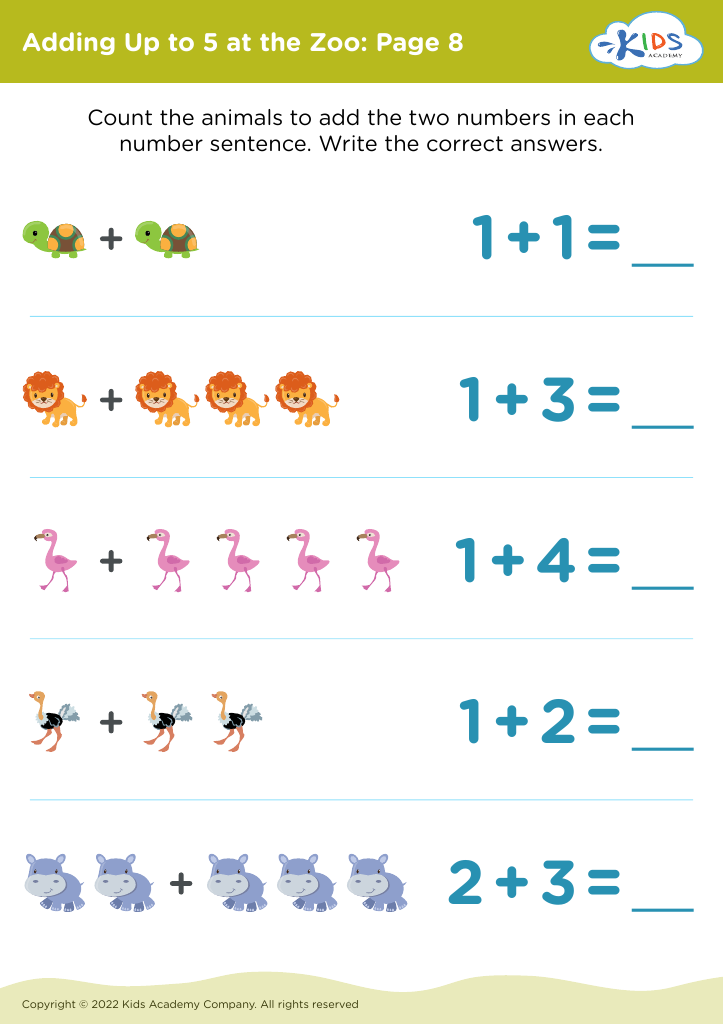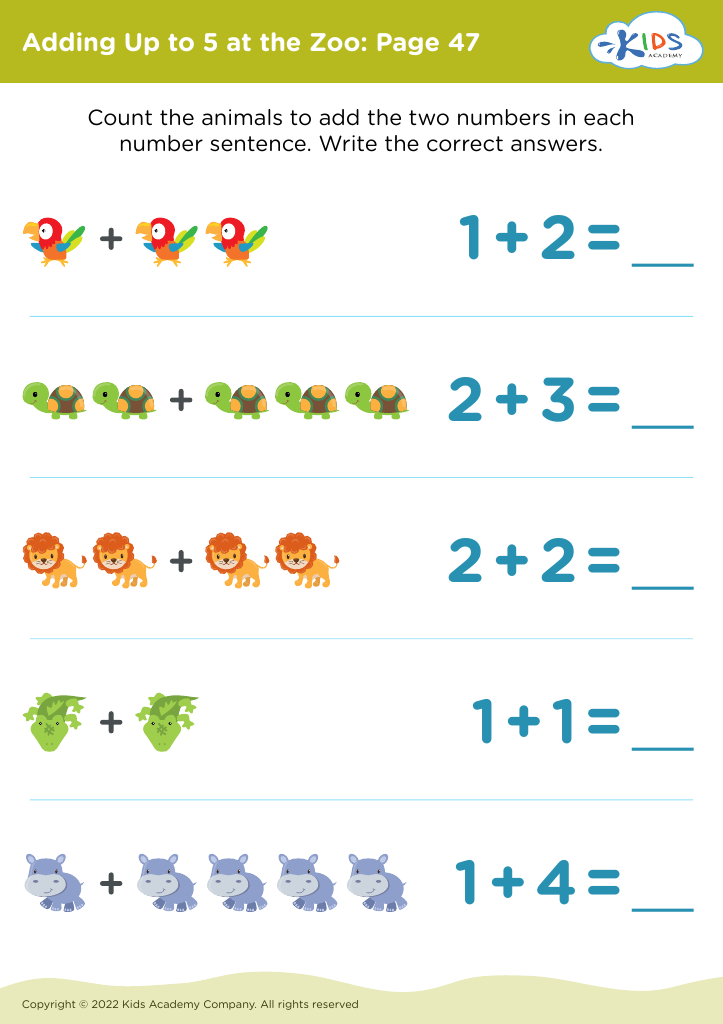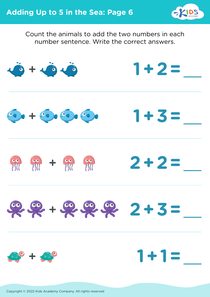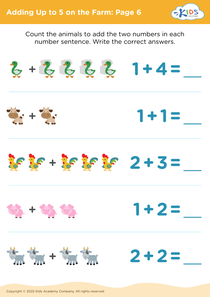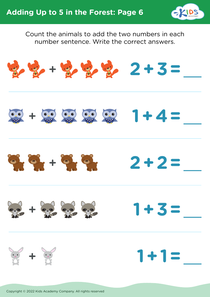Fine motor skills (writing numbers) Adding at the Zoo Worksheets for Ages 4-5
3 filtered results
-
From - To
Our "Adding at the Zoo Worksheets for Ages 4-5" are designed to enhance fine motor skills and numeracy in young learners. These engaging worksheets invite children to explore addition through delightful zoo-themed activities, promoting the ability to write numbers clearly and confidently. With colorful illustrations and age-appropriate challenges, kids practice tracing and writing numbers while solving simple addition problems. Ideal for beginners, these worksheets make learning fun and interactive, setting a strong foundation for mathematical skills. Perfect for preschool and kindergarten students, this resource supports motor development and early math fluency. Download your free printables today!
Fine motor skills are crucial for young children, particularly in tasks like writing numbers. These skills involve the coordination of small muscles, primarily those in the hands and fingers, enabling children to perform precise movements. For children aged 4-5, honing these skills lays the foundation for academic success and daily life tasks. Engaging in activities like "Adding at the Zoo" not only enhances fine motor precision but also introduces foundational mathematical concepts in an enjoyable and context-rich setting.
Writing numbers itself facilitates understanding of numerical concepts, shapes, and sequencing, which are integral to early math literacy. When children grasp how to write numbers correctly, they can better comprehend operations such as addition and subtraction. The context of a zoo-themed activity piques their curiosity and sustains engagement, making learning feel like play rather than a chore.
Moreover, developing fine motor skills boosts overall hand-eye coordination and dexterity, essential for a variety of future tasks, ranging from using utensils to tying shoelaces. Parenting and teaching at this stage should prioritize these activities to foster confidence, skill proficiency, and a lifelong love for learning. Paying close attention to fine motor skills development thus contributes significantly to a child's holistic growth and functional independence.

